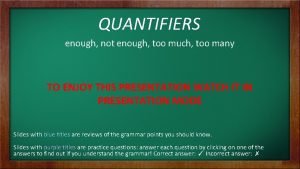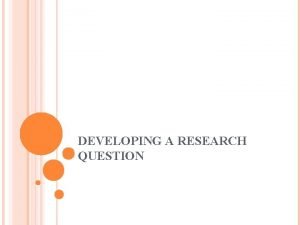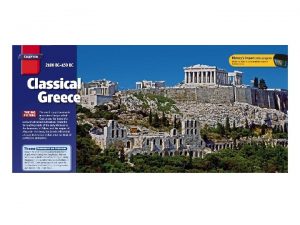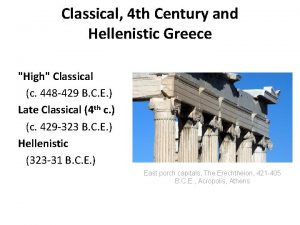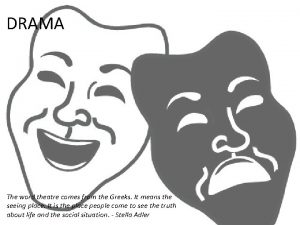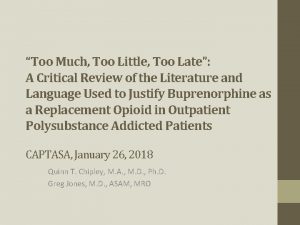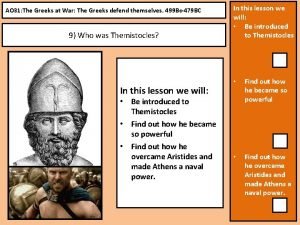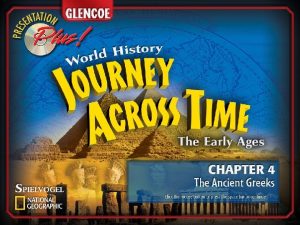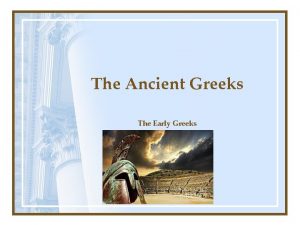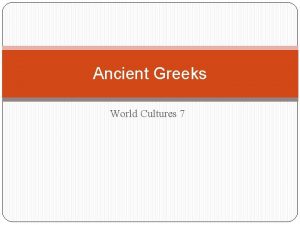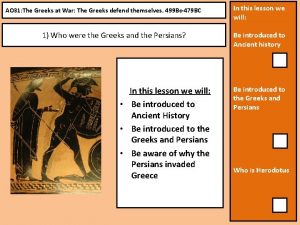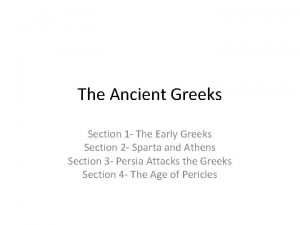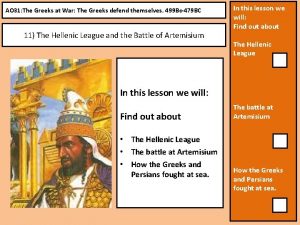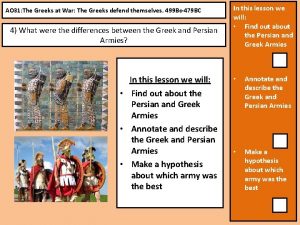traduttoretraditore or traduzionetradizione Some history Greeks too ethnocentric

















- Slides: 17

“traduttore=traditore” or “traduzione=tradizione”?

Some history Greeks: too ethnocentric to translate Romans: adaptation, imitation; translating meant reinventing the artistic value of a text

> Cicero, Horace… ST must be bent to the TL needs to reproduce the “sense” “I did not translate them as an interpreter but as an orator, keeping the same ideas and forms, or as one might say, the 'figures' of thought, but in language which conforms to our usage. And in so doing, I did not hold it necessary to render word for word, but I preserved the general style and force of the language” (Cicero) http: //www. classicpersuasion. org/pw/cicero-best-style. htm

Very different idea of authorship and intellectual property! If then, as I trust, I have given such a copy of their speeches, using all their excellencies, that is to say, their sentiments, and their figures, and the order of their facts; adhering to their words only so far as they are not inconsistent with our customs, (and though they may not be all translated from the Greek, still I have taken pains that they should be of the same class, ) then there will be a standard to which the orations of those men must be directed who wish to speak Attically

Saint Jerome (San Gerolamo; 347 -420): the Bible = God's word = the absolute translation! the 'correct' meaning

The question of TRUTH: – – fidelity and spirit literal and free word-for-word and sense-for-sense form and content

Middle Ages: translation gave up an exclusively artistic mission, because of. . . development of new national languages widespread bilingualism need to convert other peoples

In Italy As far as artistic translation is concerned. . . Dante: “nulla cosa per legame musaico armonizzata si può de la sua loquela in altra trasmutare sanza rompere tutta sua dolcezza e armonia” > Translation of poetry deemed impossible!

MARTIN LUTHER's Bible (1522 -1534): innovative, revolutionary, founding monument of the German language Ex: “happiness”: ex abundatia cordis os loquitur = out of the abundance of the heart the mouth speaks =dall'abbondanza del cuore parla la bocca = wes das Herz voll ist, des geht der Mund über =esce dalla bocca ciò di cui il cuore è pieno > New value of language spoken by people http: //www. gutenberg. org/cache/epub/272/pg 272. html

In the first place, you ask why I, in the 3 rd chapter of Romans, translated the words of St. Paul: "Arbitramur hominem iustificari ex fide absque operibus" as "We hold that the human will be justified without the works of the law but only by faith. " You also tell me that the Papists are causing a great fuss because St. Paul's text does not contain the word sola (alone), and that my changing of the words of God is not to be tolerated.

• I know that in Rom. 3, the word "solum" is not present in either Greek or Latin text—the papists did not have to teach me that—it is fact! The letters s-o-l-a are not there. And these knotheads stare at them like cows at a new gate, while at the same time they do not recognize that it conveys the sense of the text—if the translation is to be clear and accurate, it belongs there. I wanted to speak German since it was German I had spoken in translation—not Latin or Greek. But it is the nature of our language that in speaking about two things, one which is affirmed, the other denied, we use the word "solum" only along with the word "not" (nicht) or "no" (kein). For example, we say "the farmer brings only (allein) grain and no money"; or "No, I really have no money, but only (allein) grain"; "I have only eaten and not yet drunk"; "Did you write it only and not read it over? " There a vast number of such everyday cases. • In all these phrases, this is a German usage, even though it is not the Latin or Greek usage. It is the nature of the German tongue to add "allein" in order that "nicht" or "kein" may be clearer and more complete. To be sure, I can also say "The farmer brings grain and no (kein) money", but the words. . . do not sound as full and clear as if I were to say, "the farmer brings “allein” grain and “kein” money. " Here the word "allein" helps the word "kein" so much that it becomes a clear and complete German expression.

John Dryden (1631 -1700): 3 types - metaphrase: word by word - paraphrase: sense - imitation: adaptation = an effort to write as the original work would have been written had Virgil known the language spoken in his time > READER-ORIENTED

> AUTHOR-ORIENTED PERSPECTIVES Alexander Fraser Tytler's Essay on the principles of translation (1790) In order of importance: 1) give a complete transfer of ideas (be competent in the subject, give a faithful transfusion) 2) identify and reproduce style and manner 3) have all the ease of composition of the ST (fluency)

Friederich Schleiermacher, 1813, treatise on translation: Über die Verschiedenen Methoden des Übersetzens 2 different types of translator: Dolmetscher Übersetzer REAL QUESTION > how to bring the ST writer and the TT reader together

“Either the translator leaves the writer in peace as much as possible and moves the reader toward him, or he leaves the reader in peace as much as possible and moves the writer toward him” (FS)

In contrast to Dryden: Schleiermacher gives the impression of reading something else, not the work as if it were written in one's language Alienating VS Naturalizing translation (later becomes Foreignization VS Domestication)

Examples and quotes from J. Munday, Introducing Translation Studies, 2008, Ch. 2
 Kahoot quantifiers
Kahoot quantifiers Too broad and too narrow examples
Too broad and too narrow examples Being too broad
Being too broad Research questions
Research questions Too much money is chasing too few goods
Too much money is chasing too few goods Too broad and too narrow examples
Too broad and too narrow examples Small just
Small just Too foreign for home too foreign for here
Too foreign for home too foreign for here Too anointed to be disappointed meaning
Too anointed to be disappointed meaning In what forms of writing did the greeks excel
In what forms of writing did the greeks excel The greeks based their ideal of beauty on
The greeks based their ideal of beauty on Balkan peninsula ancient greece map
Balkan peninsula ancient greece map Victorian era floral arrangements
Victorian era floral arrangements Romans and greeks
Romans and greeks Greek floral design
Greek floral design Ancient greek cultural values
Ancient greek cultural values Romans and greeks
Romans and greeks Where does the word theatre come from
Where does the word theatre come from
